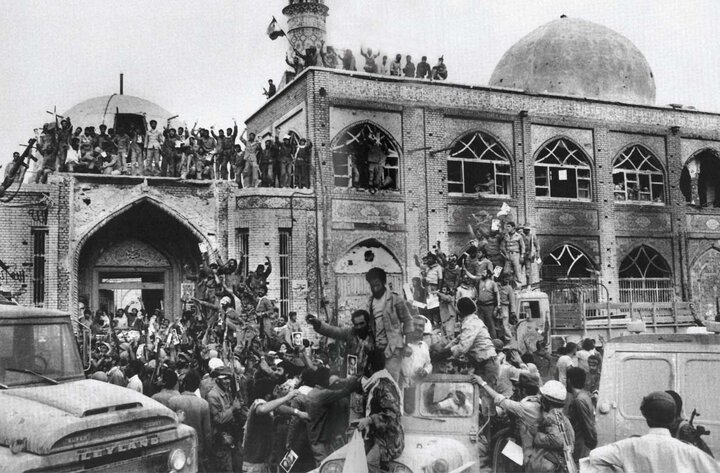Iran (IMNA) - According to Ali Mousavifar, Iran was defending itself against more than 89 Eastern and Western nations during the Sacred Defense, as the conflict is known in Iran, yet did not lose even a small portion of its land.
"The liberation of Khorramshahr puts an end to those who were fixated on Iran's defeat in the [Iranian-imposed] war," he continued.
The vital port city of Khorramshahr was freed on May 24 in 1982 as part of a significant operation known as Beit ol-Moqaddas, which ended more than 500 days of Iraqi occupation. Approximately 6,000 Iranian soldiers lost their lives during the weeks-long operation, while close to 24,000 others were injured.
The enemy's heavy military presence in Khorramshahr, according to Mousavifar, is evidence that the city was "strategic and important" to them.
He stressed that owing to Ayatollah Khamenei's guidance, the nation has made significant strides in producing military hardware.
Despite the sanctions, Iran has managed to become a regional power and one of the world's top countries in research and technology, according to the official.
Brigadier General Hamid Vahedi, commander of the Iranian Army's Air Force, also stated on Wednesday that arrogant states must now recognise Iran as a rising force with a resistance mindset.
He went on to say that Khorramshahr is a "significant keyword," implying that "as long as Iran is steadfast in its resistance and independence, there are more [cities like] Khorramshahr that should be liberated."
He cautioned that "strategic negligence in the current hybrid and complicated war" may result in the fall of places such as Khorramshahr, getting back of which would be more expensive.
"The enemy seeks to exploit strategic passivity by employing all of its capabilities," Vahedi added.


Your Comment